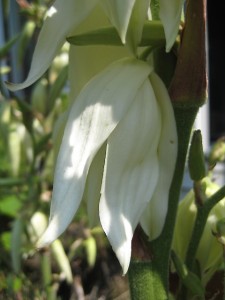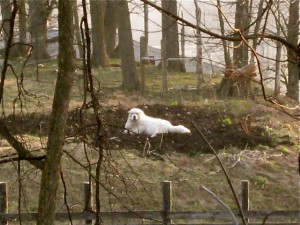“Death is a twirl; death is a shiny cloud over the horizon; death is me talking to you; death is you and your writing pad; death is nothing. Nothing! It is here, yet it isn’t here at all.” *

I ponder something I read in the local paper recently. A man went skydiving to celebrate a friend’s 50th birthday. Strapped to his instructor, he had never jumped out of an airplane before. They jump and begin the free fall. As the instructor pulls the gear that will release the parachute that will bring them safely to the ground, he is knocked unconscious, struck in the head by part of the gear it is surmised. The chute does not open. The two men, strapped together—the unconscious instructor and the novice—plummet to the ground, the twisted parachute totally useless, while the rest of their party, floating in the air around them, watches helplessly. They both die.
I feel deeply for the families of these men who died, for the rest of their group, devastated by this tragedy, and yet I cannot help but think about death as I contemplate this scenario. As the shamans are fond of saying, we are all beings who are going to die. If I know that I can die at any moment, don’t I want to be prepared, aware at all times that death is constantly stalking me?
I experience the shock of tragedy as I read of these deaths. I feel the pain of facing death in this manner, a most challenging scenario. And yet, I know it is really no different than any other death. In the scenario that I describe, the novice is with an expert and yet suddenly, at a most critical moment, the instructor, the expert, is suddenly unavailable. The expert is unconscious, the novice alert, yet he has no recourse. Death is certain. The novice, left on his own, must face his death. Yet, in the end, I must face that it will be the same for all of us. Whether our death is sudden and violent, whether it is slow and painful, or calm, coming in our sleep, we will all have to face our death alone.
I shift my thoughts to the teachings of the Shamans and the Buddhists, who spend their lives preparing for death. We can elect to spend our lives in avoidance of death, in worry of death, in fear of death, or we can spend our lives in acceptance of and preparation for death, not in a morbid way, but with awareness of its inevitability and its evolutionary potential. This is what the Shamans and Buddhists do. They understand the role of the instructor and the novice, the aware self constantly training the novice self, in waking life, sleeping and dreaming life, at all times learning how to remain aware no matter what scenario they find themselves in. They know that at some point there is always the possibility that the instructor will become unconscious and the awareness of the alert novice must take over and carry them through.
“When one has nothing to lose, one becomes courageous. We are timid only when there is something we can cling to.” **
I wonder. Perhaps these two men had prepared themselves well. Strangers though they were, perhaps they came together that day fully aware that they would die together. The reality is, that’s just what happened, they died together. Did they know? Now I must turn and ask myself: Am I preparing for my death every day, with awareness? Am I doing enough, saying enough, living and dreaming life to the fullest?
If life is indeed illusion, if this world as we perceive it, does not really exist—as the Shamans and the Buddhists, as the metaphysical thinkers, mystics, and quantum physicists alike declare—can I work to free my attachment from it more fully? Can I detach from this world that I live in, while simultaneously fully using it to train my awareness to be alert at all times?
Detachment, as I understand it, is not a negation, dismissal, or refusal to fully live life in this world, but a total living with awareness, keenly aware of the illusion, while taking full advantage of every moment to learn what that really means. Detachment is being curious, open, thoughtful, unafraid of that which is different or makes us uncomfortable, like contemplating death everyday. If death, as don Juan Matus explains to Carlos Castaneda in the quote I use to open this blog today, is nothing but part of the grand illusion, then death is now. As illusion, “it is here, yet it isn’t here at all,” as he states.

This idea is quite challenging, but if all that we perceive is illusion, then so is death. Death asks us to contemplate the self as nothing more than a novice skydiver, come to take the leap. Life asks the same of us, for we are all spinning and twirling to our deaths all the time. Are we aware of this?
I ask myself: Can I prepare myself to greet the inevitable, so that when I am in the same predicament as the man who dared to skydive, facing my own death, I will remain fully aware that I am leaving one illusion and about to enter another, even as the solid ground of this earth-time illusion comes rushing up from below to meet me with its solidity?
There really is nothing to cling to.
Contemplating the grand illusion I find myself in today,
Jan
*/** Both quotes are from A Separate Reality, as presented in The Wheel of Time, don Juan Matus talking to Carlos Castaneda.





